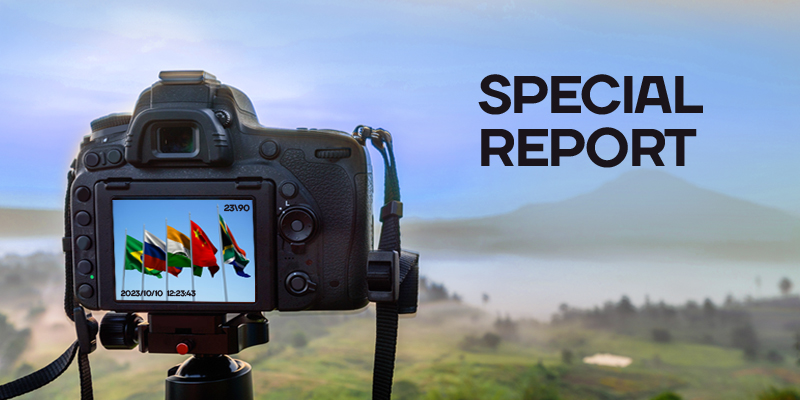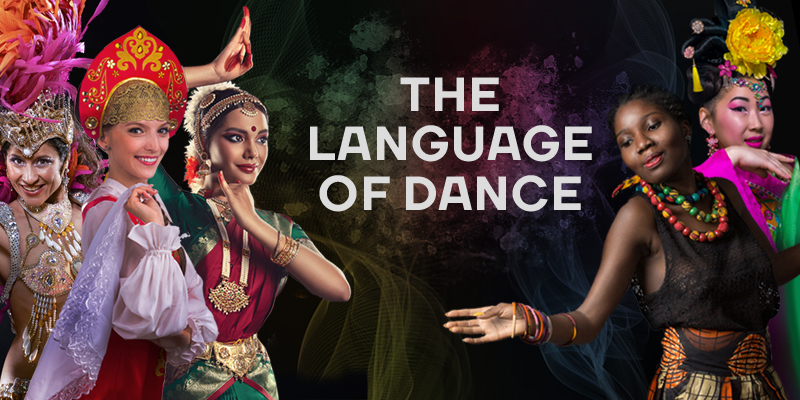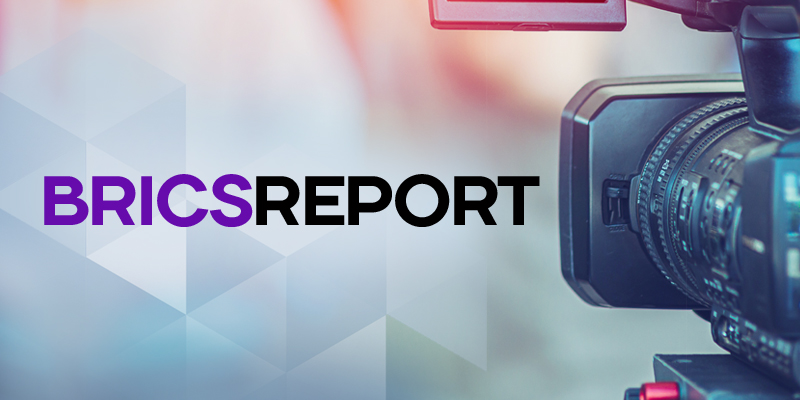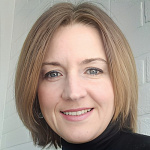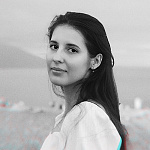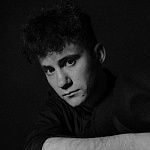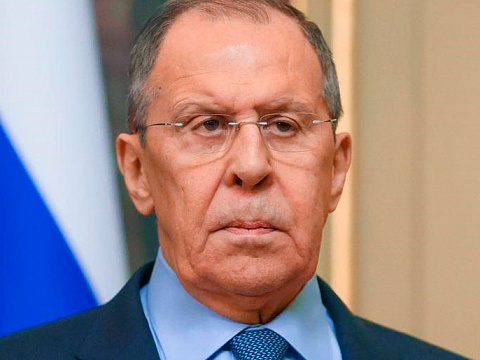COVID-19 vaccine: Clinical trials
Clinical trials of the Chumakov Center coronavirus vaccine were allowed in Russia. This is the third vaccine developed by Russian scientists. The patients of medical institutions in Kirov, St. Petersburg and Novosibirsk will be vaccinated. Doctors are expecting to enroll about three thousand volunteers. After vaccination, they will be kept in isolation and monitored by experts for two weeks.
Russian journalist Aleksey Lazurenko was one of the brave ones. However, he decided to test the world's first COVID-19 vaccine, Sputnik V. He was vaccinated back in the middle of September, and he did not miss it, for now he knows for sure that there are antibodies in his body. Vaccination is conducted in two stages.
Aleksey Lazurenko, participant of COVID-19 vaccine research: "Immediately after the injection you stay there for half an hour; the doctors must monitor you to see if there is a primary reaction. After that, they put a bracelet on us, a usual sports tracker. It should be synched with the app at least once a day. It records the data on temperature, blood oxygen, heart rate and pressure. All these data are sent to some consolidated system accessible to the doctors. I had a headache and I felt a slight fever. There was no other symptom. I had a condition like before the cold. I was a little scared after the component was injected; I even stayed at home, but I didn't encounter any health issue".
And there was not much excitement either. The virus evoked more fear than the newly invented drug. Confidence in the effectiveness and reliability of the component was added by a positive experience of using the vaccine base.
This is the platform on which the Ebola drug used to be created. Biologists chose a virus safe for humans, and integrated the COVID-19 gene into its genome. As a result of chemical reactions, Sputnik V retains a protein stimulating immunity in the patient's body.
Vladimir Gushchin, Head of the Laboratory for Mechanisms of Population Variability of Pathogenic Microorganisms at N.F. Gamaleya SICEM: "In order to create the conditions protecting a person from the virus, s/he must have a pre-existing immunity. The use of the vaccine actually makes the human immune system respond to the injected vaccine in such a way that the pre-existing immunity does not allow the disease progression when a person is affected by a real infection. The virus hits a man and may even try to infect him, but the immune system recognizes and destroys it before it can spread across the body and cause any visible symptom".
The Russian Direct Investment Fund has applied to the World Health Organization for accelerated drug registration. The certificate will make it available to the whole world. In the meantime, the third stage of Sputnik validation is pending. Several hundreds of patients have already received the first component.
Evgeny Golovko, Deputy Chief Physician of the Medsi Clinic in Solyanka: "Every day we receive about one and a half dozen of people who ask questions about how the trial is conducted, and some people are enrolled therein. We conduct 4-5 vaccinations per day. During the trial, three quarters of patients will receive the vaccine, and one quarter – placebo. Neither the researcher nor the patient knows what each individual patient will get".
Patients are followed up for six months. Only a few months later it will be clear whether the participant was vaccinated or not. Tatyana Moskovskaya did not wait for the end of the trial, took an antibody test and found out that she was in the group of three quarters of the lucky ones. She immediately brought her old mother for vaccination.
The experiment participants are prepared for vaccination almost as thoroughly as astronauts. Chronic diseases, vaccinations, medications for neuroses – all this reduces the chance of being vaccinated.
Tatiana Moskovskaya, COVID-19 trial participant: "I signed up through Mos.ru, then I got a call and a nice woman's voice said that I had been chosen. I waited for about 3 weeks. I was shaking, I couldn't sleep, nobody supported me, everybody said, “Where did you go, are you crazy?” But I thought we need to study somehow, to move somewhere. The virus does not go anywhere; it probably decided to stay with us for a long time".
In the middle of October, Russian president Vladimir Putin reported about recognition of the second vaccine as valid. It was developed by experts of Victor Center in Novosibirsk. The drug was named EpiVacCorona. It is proposed to be injected intramuscularly. Over 40 thousand volunteers are to take part in post-registration studies. They will include people of advanced age, over 60 years old. As you know, they are particularly vulnerable to the risk of severe post-coronavirus complications.
Vladimir Putin, President of the Russian Federation: "I would like to congratulate Russian science and scientists on this success. This is certainly an important task that you have accomplished successfully. Thank you very much for your work, your work, your talent, and your devotion. We now need to expand the production of our first vaccine and proceed with the second one. First of all, we need to meet the demand of the Russian market for these drugs. They must be supplied to our pharmacy chains".
The sale of the second vaccine, EpiVacCorona, is proposed to be launched on January 1 of the next year. The third drug is on the way. After its successful postclinical trials, it will be possible to talk about the most successful COVID-19 vaccine.
Russian journalist Aleksey Lazurenko was one of the brave ones. However, he decided to test the world's first COVID-19 vaccine, Sputnik V. He was vaccinated back in the middle of September, and he did not miss it, for now he knows for sure that there are antibodies in his body. Vaccination is conducted in two stages.
Aleksey Lazurenko, participant of COVID-19 vaccine research: "Immediately after the injection you stay there for half an hour; the doctors must monitor you to see if there is a primary reaction. After that, they put a bracelet on us, a usual sports tracker. It should be synched with the app at least once a day. It records the data on temperature, blood oxygen, heart rate and pressure. All these data are sent to some consolidated system accessible to the doctors. I had a headache and I felt a slight fever. There was no other symptom. I had a condition like before the cold. I was a little scared after the component was injected; I even stayed at home, but I didn't encounter any health issue".
And there was not much excitement either. The virus evoked more fear than the newly invented drug. Confidence in the effectiveness and reliability of the component was added by a positive experience of using the vaccine base.
This is the platform on which the Ebola drug used to be created. Biologists chose a virus safe for humans, and integrated the COVID-19 gene into its genome. As a result of chemical reactions, Sputnik V retains a protein stimulating immunity in the patient's body.
Vladimir Gushchin, Head of the Laboratory for Mechanisms of Population Variability of Pathogenic Microorganisms at N.F. Gamaleya SICEM: "In order to create the conditions protecting a person from the virus, s/he must have a pre-existing immunity. The use of the vaccine actually makes the human immune system respond to the injected vaccine in such a way that the pre-existing immunity does not allow the disease progression when a person is affected by a real infection. The virus hits a man and may even try to infect him, but the immune system recognizes and destroys it before it can spread across the body and cause any visible symptom".
The Russian Direct Investment Fund has applied to the World Health Organization for accelerated drug registration. The certificate will make it available to the whole world. In the meantime, the third stage of Sputnik validation is pending. Several hundreds of patients have already received the first component.
Evgeny Golovko, Deputy Chief Physician of the Medsi Clinic in Solyanka: "Every day we receive about one and a half dozen of people who ask questions about how the trial is conducted, and some people are enrolled therein. We conduct 4-5 vaccinations per day. During the trial, three quarters of patients will receive the vaccine, and one quarter – placebo. Neither the researcher nor the patient knows what each individual patient will get".
Patients are followed up for six months. Only a few months later it will be clear whether the participant was vaccinated or not. Tatyana Moskovskaya did not wait for the end of the trial, took an antibody test and found out that she was in the group of three quarters of the lucky ones. She immediately brought her old mother for vaccination.
The experiment participants are prepared for vaccination almost as thoroughly as astronauts. Chronic diseases, vaccinations, medications for neuroses – all this reduces the chance of being vaccinated.
Tatiana Moskovskaya, COVID-19 trial participant: "I signed up through Mos.ru, then I got a call and a nice woman's voice said that I had been chosen. I waited for about 3 weeks. I was shaking, I couldn't sleep, nobody supported me, everybody said, “Where did you go, are you crazy?” But I thought we need to study somehow, to move somewhere. The virus does not go anywhere; it probably decided to stay with us for a long time".
In the middle of October, Russian president Vladimir Putin reported about recognition of the second vaccine as valid. It was developed by experts of Victor Center in Novosibirsk. The drug was named EpiVacCorona. It is proposed to be injected intramuscularly. Over 40 thousand volunteers are to take part in post-registration studies. They will include people of advanced age, over 60 years old. As you know, they are particularly vulnerable to the risk of severe post-coronavirus complications.
Vladimir Putin, President of the Russian Federation: "I would like to congratulate Russian science and scientists on this success. This is certainly an important task that you have accomplished successfully. Thank you very much for your work, your work, your talent, and your devotion. We now need to expand the production of our first vaccine and proceed with the second one. First of all, we need to meet the demand of the Russian market for these drugs. They must be supplied to our pharmacy chains".
The sale of the second vaccine, EpiVacCorona, is proposed to be launched on January 1 of the next year. The third drug is on the way. After its successful postclinical trials, it will be possible to talk about the most successful COVID-19 vaccine.
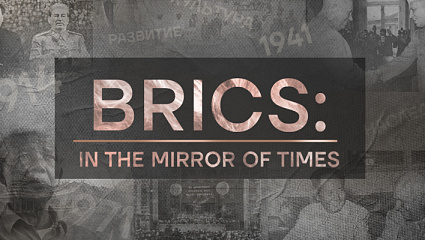
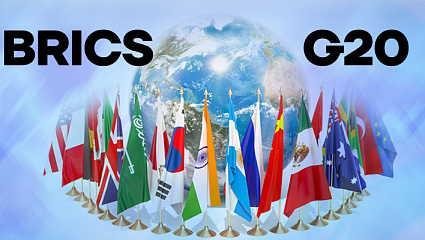
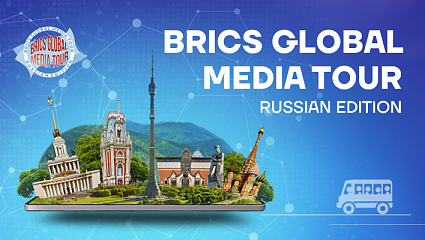

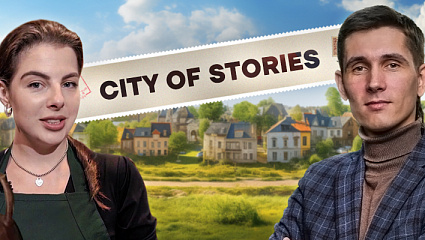
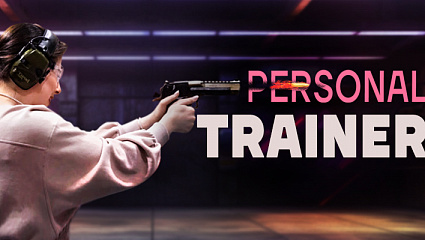

 DIGITAL WORLD
DIGITAL WORLD









